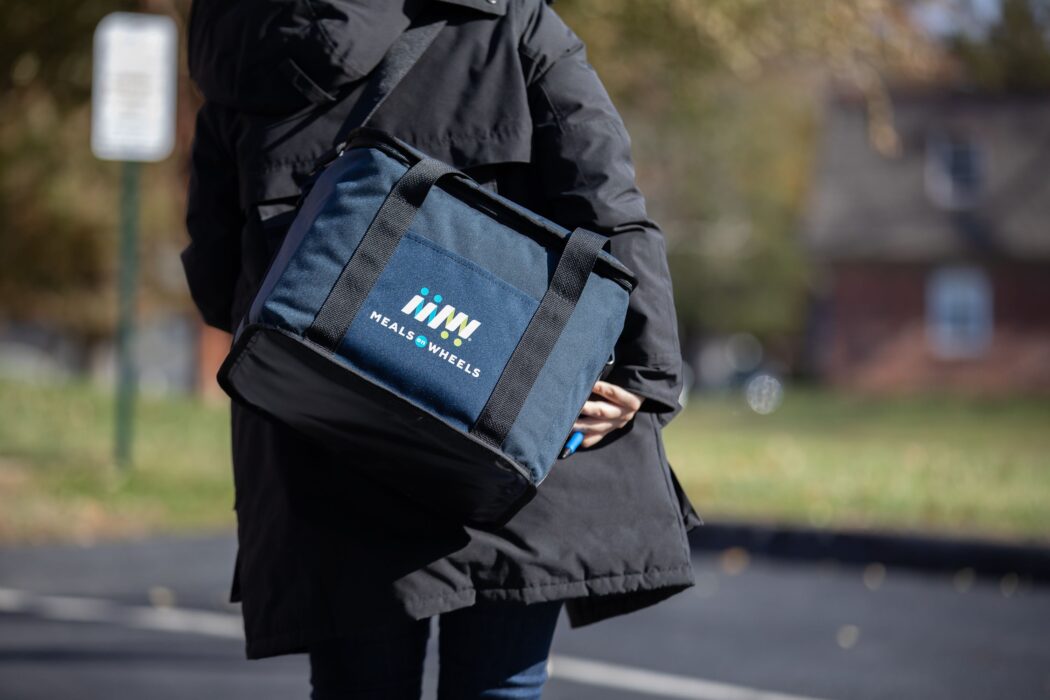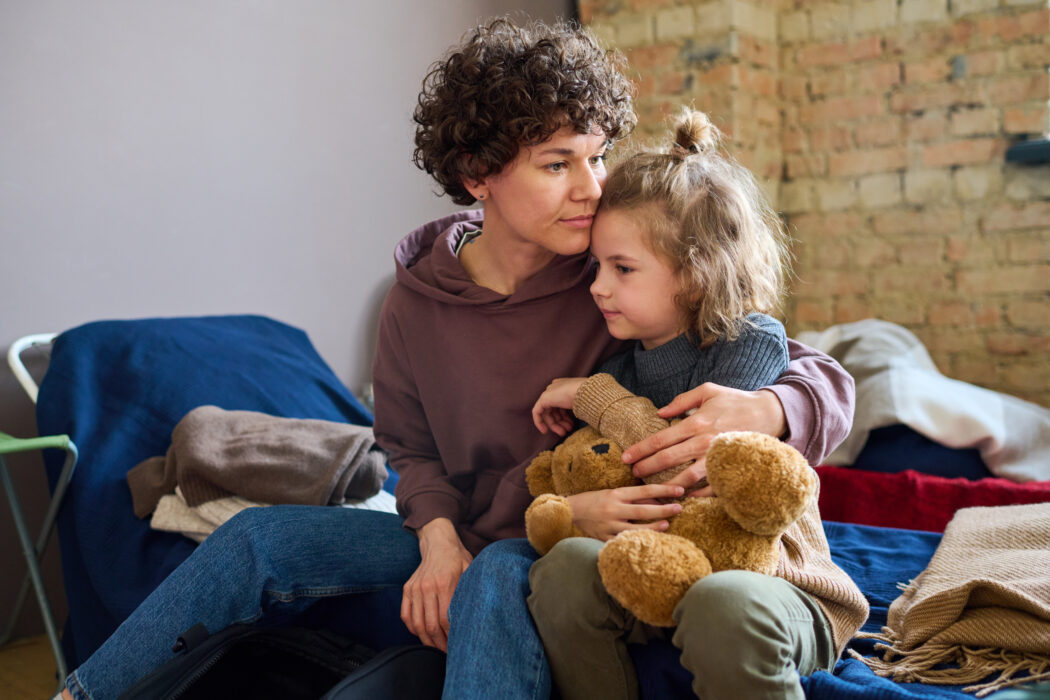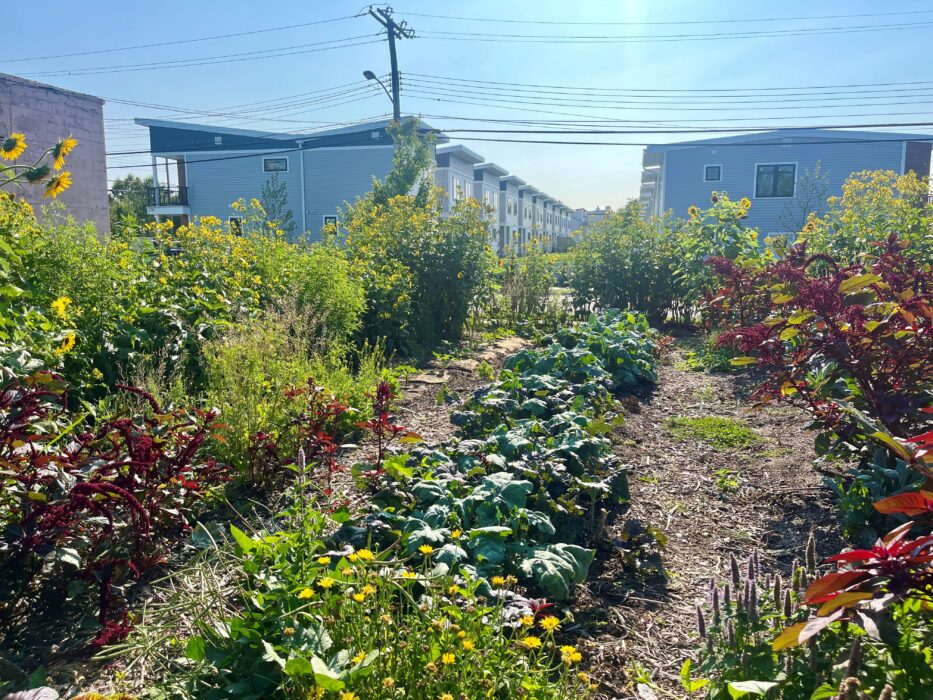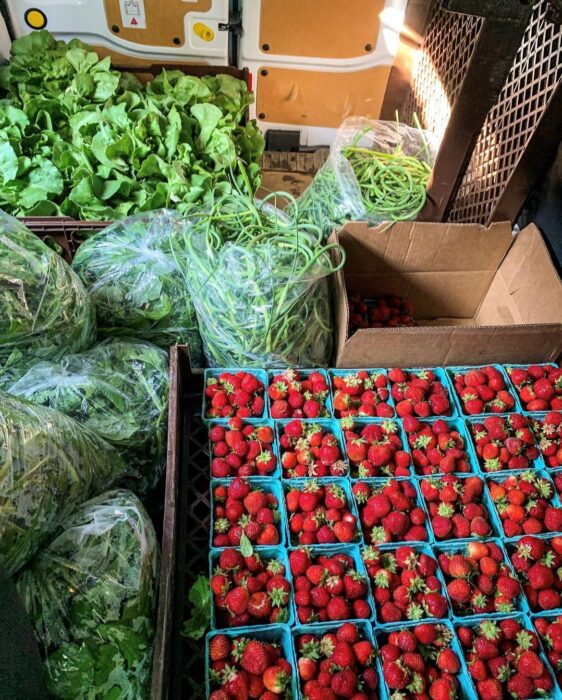-
Program Spotlight | Meals on Wheels Monmouth County – Let’s Save Lunch!
As we approach March, our seniors need us to “March for Meals” now, more than ever. Local Meals on Wheels branches across the nation are struggling to access adequate funding to continue delivering meals to seniors in need while undergoing challenges such as increased food costs and gas prices, labor shortages, and supply chain issues. With these issues being so prevalent, Meals on Wheels has started a new campaign, #SaveLunch, which calls on citizens to urge Congress to increase funding provided by the Older Americans Act, which supports Meals on Wheels programs across the country.
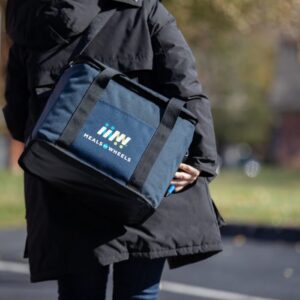
Meals on Wheels of America reports that 10 million senior citizens are threatened by or experience hunger. Food insecurity among older adults is disproportionately affecting people of color, with 17% of Black seniors and 14% of Hispanic seniors experiencing hunger compared to 6% of White seniors. One in four people in America are 60+ and this population is only getting larger, with 12,000 turning 60 each day. As the senior citizen population increases, seniors are living longer with less money. One in two seniors living alone lacks the income to pay for basic needs. Homebound seniors also struggle with isolation and loneliness in addition to food insecurity. One in three seniors lives alone and one in four seniors reports feeling lonely.
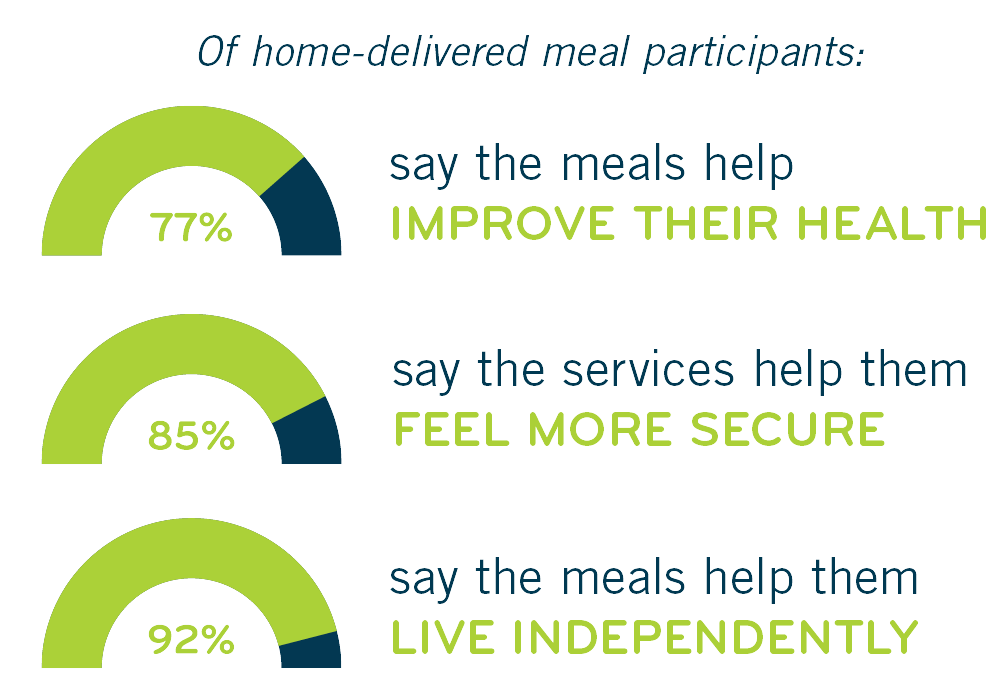
As these pressing issues of senior hunger and isolation grow, Meals on Wheels continues to be a beacon of light, bringing food security, nutrition, and a friendly face to seniors in need. Meals on Wheels of Monmouth County, operated by Interfaith Neighbors, serves over 1,100 meals daily to homebound seniors, disabled persons and seniors visiting their senior centers for meals.
Interfaith Neighbors serves approximately 3,500 seniors annually, amounting to over 350,000 meals delivered each year. And, Interfaith Neighbors ensures these meals are made with nutritious and quality ingredients to best serve Monmouth County senior citizens.
You can support Meals on Wheels of Monmouth County during this March for Meals campaign by donating to help continue services to seniors in need, volunteering filling bags with meals or delivering, spreading awareness about the issues of senior hunger and isolation, or by urging Congress to #SaveLunch for senior citizens. There are numerous ways to assist in ensuring seniors have stability and security through supporting Meals on Wheels. -
Program Spotlight | Facing a Crisis: The Rental & Mortgage Assistance Program
The shortage of affordable housing and families facing homelessness has been an issue in the U.S. and NJ since long before Interfaith Neighbors’ founding in 1988. However, today’s “housing crisis” has increasingly been affecting numerous people who never imagined they could be struggling.
The U.S. Poverty Rate saw its largest one-year increase in history with 12.4% of Americans living in poverty in 2022, increasing from 7.4% in 2021. According to the 2023 State of the Nation’s Housing Report by Harvard University, 2022 was a record-breaking year for rising rent and home-ownership prices in the U.S., where annual home prices rose 20.1% and annual rent price growth reached 15.3%. 2.4 million more people were priced out of their homes in 2022 than in 2021, and the annual income to afford median home ownership rose 20% to $117,000 (JCHS). Here in New Jersey, the problem is exacerbated by the high cost of living. Here, housing costs are 31% higher than the national average. The United Way estimates that 37% of Monmouth County residents fall into the category of “working poor.” Not surprisingly, in conjunction with rising home and rent prices, the number of citizens experiencing unsheltered homelessness rose 3.4% since 2020, according to the US Department of Housing and Urban Development (HUD). Communities with a high concentration of people of color and high poverty rates, like Asbury Park, are disproportionately experiencing negative effects from this latest housing crisis.
Interfaith Neighbors’ (IFN) Senior Manager of Homeless Prevention through Rental & Mortgage Assistance, Judy Nelan, expressed how great the need for rental and mortgage assistance currently is, especially in the low-income areas Interfaith Neighbors serves across Monmouth County.
“The phone just rings and rings all day long. We’re getting about 150 calls for mortgage and rental assistance per week, which is about double what we received last year at this time,” Judy explained. She went on to describe some of the program’s current challenges, stating, “most of the grants we receive to assist people who have fallen behind in their housing payments require rent to be affordable for the recipient going forward, and this is becoming harder to achieve due to the ever increasing rents in Monmouth County. We’re having to refer significantly more people to other agencies, and there have been numerous people returning for additional assistance who were previously helped with one or two months of rent.”
The Rental and Mortgage Assistance Program is funded primarily by Monmouth County, with SSH (Social Services for the Homeless) and SSH/TANF (SSH/Temporary Assistance for Needy Families) grant funds, as well as a grants from the State of NJ and private donations. In 2023, the Program received $281,448 in SSH and SSH TANF funding. During the COVID-19 pandemic, emergency rental assistance funding was also provided through the county and state to supplement the standard funding. IFN’s Program assisted 298 households with over $635,900 in 2022. From January 2023 to July 1st, 2023, the Rental and Mortgage Assistance Program assisted 174 households with $447,820. With this trend continuing, the program will assist significantly more households in 2023 than in 2022, due to the county’s additional COVID-related funding and increases in need for assistance. However, it is anticipated that 2023 will be the last year that COVID-related funding will be available.
With so many people facing evictions, foreclosures, and near homelessness, the work of IFN’s Rental & Mortgage Assistance Programs is as pertinent as ever. Many of the individuals and families inquiring about assistance with rent and mortgages never thought they would see the day they had to call for help. Interfaith Neighbors was founded on this work of preventing homelessness and will continue to provide those in need with the basic necessities of life, especially the needed assistance for people to remain in their homes and stave off homelessness.
-
Program Spotlight | Community Empowerment: Education & Food Justice
Kula Urban Farm, a program of Interfaith Neighbors, has been empowering the Asbury Park community since its inception in 2015. With its hydroponic greenhouse, traditional raised beds, and Farm Without Borders, Kula Farm grows seasonal, sustainable produce that can be purchased by local restaurants and residents, while supplying free produce to the community and neighboring food pantry. However, the work to support the community with access to healthy food does not stop there. The Farm is also committed to providing education, experiences for the development of a healthy lifestyle, and an engaging community space for community members.
Kula’s dedication to food justice and access is exemplified through its partnership with Bethel AME Food Pantry. Produce is harvested and contributed weekly to this local food pantry, located on the lot adjacent to the Farm, and distributed to local families. Many West Side residents lack the funds and access to fresh, healthy produce and would suffer nutritionally without this initiative. Kula Farm also manages the Farm Without Borders located on Springwood and Atkins Avenues. The Farm Without Borders has transformed a vacant lot into an open community garden, where community members are welcome to harvest throughout the season. This not only makes for a more beautiful Asbury Park, but it also allows the community to be involved in the process of growing their own healthy food.
Kula Farm also facilitates a job program, designed to promote foundational workplace skills for members of the community. By offering a positive work experience to add to a resume, Kula Farm hopes to take away barriers to future employment. Working with your hands, performing tasks like planting and weeding, can also be extremely therapeutic. Those returning to the workface after a long hiatus or previous incarceration are welcome to restart their journey here— stop by to fill out an application!
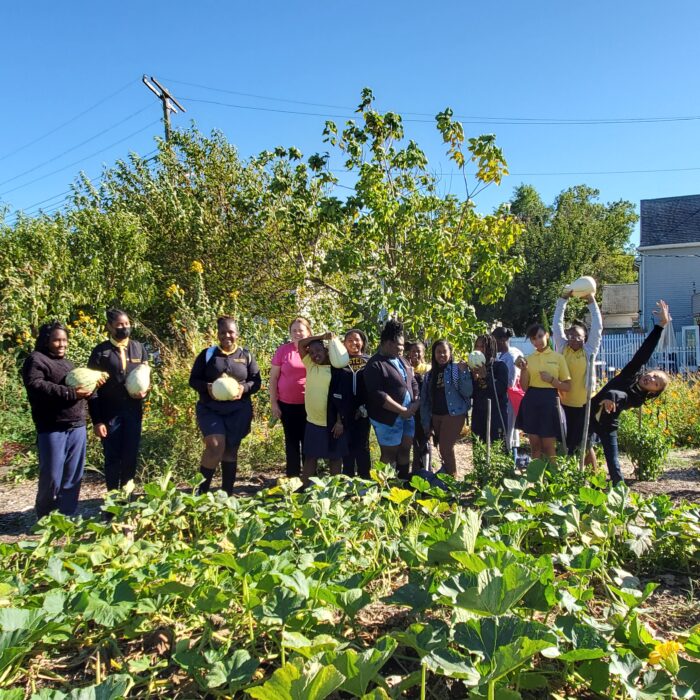
Sisters Academy students visit the Kula Farm without Borders and assist with the harvest. Community engagement and education is facilitated through classes and workshops held at the Farm. Classes and workshops engage individuals of all ages on a variety of topics. Kula works with various schools to organize extracurricular programs and holds homeschool classes for children, teaching them about the environment and gardening, while providing hands-on activities. Some of the workshop topics for adults include composting, the cannabis industry, recycled art, kimchi making, nature printmaking, and more! It’s an amazing space to learn and express yourself while engaging with the community.
Interfaith Neighbors’ Meeting the Moment Campaign has secured funding for an exciting expansion of the Farm, that will add a three-season pavilion, a full kitchen, and bathrooms. Look for these new additions next spring! The expansion will allow the Farm to increase community outreach and events to reach even more people in the community. Kula Urban Farm will continue to provide the surrounding community with the tools, education, and space that empowers them to conquer food injustices and to flourish.
-
Program Spotlight | Community Food Connection
The Community Food Connection, initiated by Interfaith Neighbors (IFN), has already made a lasting impact on food justice in the Asbury Park area and hopes to spread its influence by organizing more individuals, community groups, foundations, farms, and health-care systems to combat food insecurity together. The Community Food Connection is a community-led coalition that connects Asbury Park food pantries and other community spaces to share information and resources, to ultimately have an impact on eliminating nutritional insecurity and increasing food access. This coalition is an outgrowth of the Building Healthier, More Equitable Communities (BHEC) program, led by the Philadelphia-based Reinvestment Fund, and funded by the Robert Wood Johnson Foundation. Four cities, Asbury Park, Camden, Paterson, and Newark were selected to participate in the BHEC program in 2021, and IFN is the designated lead agency for Asbury Park. IFN BHEC Coordinator, Karyn Moskowitz, has played an integral role in the coalition.
“Growing up in the Garden State, eating fresh produce from farm stands, I was veggie-obsessed from a young age,” Karyn said. She described her passion for food justice and her realization, while working in Louisville, Kentucky that numerous individuals lack access to consistent, affordable, healthy food.
“According to the NJ Economic Development Authority, Asbury Park is the 17th ranked food desert in severity in the state. And the number one cause of death in our country is heart disease. What we’re dying from is preventable, and we need to invest in creating access to fresh, healthy food to stop it,” Karyn stated.
Karyn’s knowledge and enthusiasm, combined with Interfaith Neighbors’ and BHEC’s mission and resources, has led to numerous initiatives in Asbury Park to combat these issues. Community Food Connection linked with NJ family owned Fernbrook Farms, that was passionate about their food being distributed to those lacking access to fresh produce. Last year, with funds from the BHEC Grant, Hackensack Meridian Health, and many individual donors, IFN purchased produce from Fernbrook Farms, supplying 200 families with fresh, local produce every week. This season, 400 families will be receiving this produce weekly from 17 food pantries in the Asbury Park area.
Another success for food justice in Asbury Park germinated by the Community Food Connection is a popular farmer’s market, Asbury Fresh Market, accepting NJ SNAP benefits for low-income families! The coalition is working to expand these conversations with other farmer’s markets.
“We’re focusing a lot more on workshops and demos this season, as many people who now have access to fresh, healthy food don’t exactly know how to prepare it. We’ve created veggie tip sheets and recipes, and plan on hosting cooking classes” explained Karyn.
In fact, this past May, Community Food Connection partnered with the Asbury Park Mayor’s Wellness Committee for “Stigma Free May.” This challenge explored the connection between behavioral health and nutrition, challenged citizens to adopt a plant-focused diet, and had numerous events with community partners. Some of these events included cooking demos, panel discussions, and guided meditations.
The coalition’s work does not stop at Asbury Park. Karyn is part of the Statewide Food Policy Council. Two recent workshops, in collaboration with Newark, focused on “Reimaging Local Food Systems” and “Food is Medicine.” Working with other cities to advocate for statewide policy change is important to the coalition, as well as the BHEC initiative.
As the Community Food Connection gears up for its second growing season, they can use all the help they can get! Visit the IFN website to find out more about how to get involved and volunteer. Fighting for food justice every day, the Community Food Connection keeps planting seeds and growing roots, so our food system can continue to improve.
-
Program Spotlight | The Power of a Knock
A knock at the door might not seem like a big deal to many of us. But, to a homebound senior citizen, it could signal the arrival of the only person they might see all day, or all week long. It brings hope. It brings health. It brings the nutrition and care that will completely make their day. A knock from an Interfaith Neighbors Meals on Wheels representative means nourishment for the body and soul.
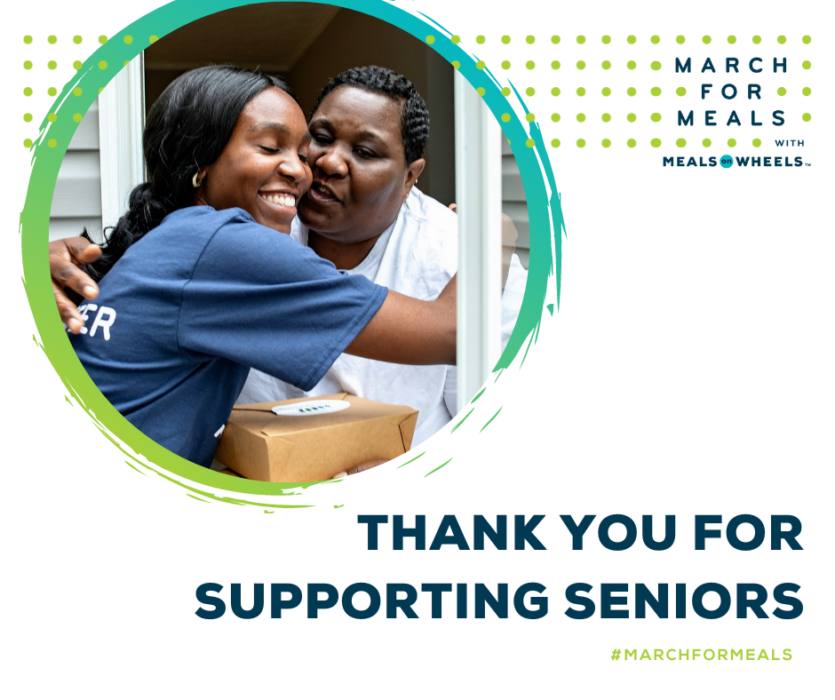
Every weekday Interfaith Neighbors’ employees and volunteers knock on doors and deliver meals to homebound seniors throughout Monmouth County. Many of these senior citizens would face food insecurity and/or malnutrition without our services. According to Meals on Wheels America, 7.2 million senior citizens are either food insecure or facing hunger in the US. There are layers of examples and stories behind these numbers, and Interfaith Neighbors aims to provide long-lasting positive effects on the seniors we serve through our Nutrition/ Meals on Wheels Program.
Interfaith Neighbors began operating the Monmouth County branch of Meals on Wheels in 1991. Our organization delivers over 1,100 meals every weekday. Powered by employees and hundreds of volunteers, we make sure these meals are delivered to the doorsteps of homebound seniors and six municipal congregate sites for seniors who need it most.
Senior populations are some of the most at-risk when it comes to food insecurity. About 33% of older adults admitted to the hospital may be malnourished and up to 50% of community-dwelling older adults may be malnourished (Meals on Wheels, 2020). The nation’s growing senior population, expected to double by 2050 to 112 million, will exacerbate this need. Meals on Wheels services are needed now more than ever.
COVID-19 has had lasting negative effects on senior hunger and malnutrition as well. According to Meals on Wheels America, the proportion of seniors 60 years and older who sometimes or often did not have enough to eat rose to 4.9% in 2020 from 2.8% in 2019, a 75% increase. Not only did seniors suffer more from hunger due to the pandemic, but they also reported higher rates of anxiety or depression.
Many of our Meals on Wheels recipients reported being extremely lonely during the pandemic, causing their mental well-being to decline. We continue to experience COVID spread in our communities resulting in our seniors continuing to feel isolated and fearful of exposure to the virus.
We fufill the need for social interaction and nutritious meals for homebound seniors. Frankly, our Meals on Wheels deliveries are much more than a meal, and numerous seniors have expressed how much our drivers’ friendly faces mean to them.
March marks a special time for the Meals on Wheels nationwide organization, March for Meals. The March for Meals Campaign shines a light on the need for funding to continue addressing growing isolation and hunger, through community-based programs such as the one IFN facilitates.
Approximately 350,000 meals are prepared and delivered annually by Interfaith Neighbors Meals on Wheels for seniors and disabled persons. We operate 75 routes covering the 665 square miles of Monmouth County, delivering hot lunches, and for many participants, their daily breakfast. Each day our kitchen team, drivers and up to 125 volunteers make our program work. No one is required to pay for their meals, but donations are appreciated from recipients who are able and from the broader community.
-
Program Spotlight | Home for the Holidays (Almost)
Owning a home means stability, agency, and being part of a community to Carritta Cook. Carritta has recently contracted to purchase one of Interfaith Neighbors’ (IFN) Parkview AP homes. She and her son Jeremiah will be moving into the home Spring of 2023. Almost home for the holidays, and certainly looking forward to enjoying them in her new home come next year.
Parkview AP is an Interfaith Neighbors project, which will ultimately result in ten new homeowners on the West Side of Asbury Park. To date, six of the homes have been completed, sold and occupied. Two of these were purchased by qualified low- to moderate-income purchasers, and the other four, were purchased at market rate. Each property includes a three bedroom, two and a half bath home and a detached garage with a one-bedroom apartment above. The remaining four properties, all of which have contracted purchasers, are projected to be completed in the second quarter of 2023.
Originally from Trenton, Carritta came to Asbury Park because her godmother lived here, and she was hoping to find more affordable childcare for her son, Jeremiah.
“We haven’t turned back ever since. Once we settled into Asbury Park, I always said this would be our forever home” Carritta explained. Now employed at a local oral surgeon’s office and the President of the Asbury Park School Board, Carritta has certainly become ingrained in the Asbury Park community. She described that she feels more at home and part of this community than she ever did in the ones she grew up in.
“The back unit that I will be able to rent out is one of the greatest parts. Rental payments will provide me with supplemental income that will allow me to leave living paycheck-to-paycheck behind,” Carritta described when asked about her favorite features of the home. Once she becomes more financially stable, she hopes to keep the back apartment unit as an extension of her own home.
“Owning a home means financial freedom to me,” Carritta explained. It’s the little things, like taking a day off to go to her son’s school assembly, that being more financially stable will give her the agency to do.
Carritta went on to talk about the Pathway to Home Ownership Program Interfaith Neighbors offers and how IFN helped her purchase this home. Pathway to Home Ownership provides a first time home buyer credit counseling to be sure they are ready for the transition to homeownership. Participants sign a one-year lease on a three-bedroom apartment and pay a below-market-rate monthly rental fee. IFN escrows a portion of their monthly rental payments to contribute to the down payment on the purchase of a home. Carritta said she could not imagine accomplishing owning a home without this program.
“Helping me figure out the lender process was a huge help. They advised that I could go to multiple lenders if need-be without it hurting my credit. Interfaith suggested several lending options and one of them worked out great!” Carritta explained.
When Carritta moves into her new home next spring, she is hoping to foster a child as well. Carritta has already started the process to become a licensed foster parent and has one last home study and an inspection to pass before obtaining her license. Another child who needs a home will be given a place in her Asbury Park haven.
“I’m excited I won’t always have to be on Jeremiah to be quiet when he’s playing because there will be no one living below us,” Carritta stated, chuckling a bit. Jeremiah is especially excited they can have their two cats live with them again, who have been staying at a friend’s house.
With so much to look forward to including stability, safety, and comfort, Carritta Cook and her family are grateful and excited to become new homeowners. Next year, she’ll have her first months of homeownership under her belt, and a place to call home for the holidays.
